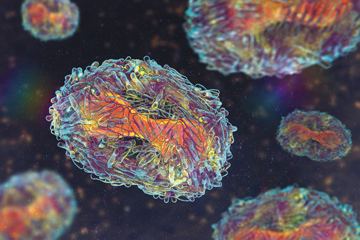![]()
Our Maui Summer Welcomes New Viral Developments
Errol Buntuyan, M.D., FAAFP
Summer is here and in full swing. Many Maui locals are flying out to international destinations like the Philippines as cities open with less travel restrictions to finally reunite with loved ones. There is also the continuation of mainland vacationers pouring onto our beaches seeking respite in our tropical paradise.
Monkeypox
Summer has also signaled the arrival of monkeypox on O‘ahu shores with a few discovered cases.
Monkeypox is endemic in areas of West Africa and over the years, there have been a handful of cases in the United States. These prior cases have been traced to animal transmission and/or travel from Africa. The monkeypox cases in the U.S. over the last few months are concerning because there does not seem to be a connection with travel or animal exposure. Scientists are still working on understanding the current outcrop of U.S. cases.
Monkeypox is a rare but serious disease caused by the monkeypox virus (a strain of orthopox virus). The monkeypox virus is in the same family and closely related to the smallpox virus. Smallpox was officially eradicated in 1980 because of mass global vaccinations in the 1960s and ’70s. People who received the smallpox vaccine are seemingly protected from monkeypox. The smallpox vaccines stopped being routinely administered in 1972 and there is no anticipation of starting another vaccine campaign because of this recent monkeypox activity.
The R0 number (R naught) of a virus refers to how many people one infected person will go on to infect. The R0 for monkeypox is less than 1. In comparison, COVID’s Omicron has an R0 of 12. So if a virus has an R number of twelve then a person who catches it will, on average, go on to infect twelve other people. Based on the current information available, the risk to contract monkeypox to most Hawai‘i residents remains very low.

Photo: Shutterstock
According to the CDC, here are some key points to remember:
•Monkeypox virus can spread when a person comes into contact with the virus from an infected animal, infected person or materials contaminated with the virus.
•Common symptoms: Flu-like symptoms; swelling of lymph nodes; rash or sores, often on the hands, feet, chest, face or genitals.
•Avoid skin-to-skin and prolonged close contact (touching sores, kissing, sex) with anyone who has an unusual rash or monkeypox symptoms.
As of June 24, 2022, the DOH identified five confirmed monkeypox cases and one probable case in Hawai‘i residents.
COVID-19 Pandemic
In other virus-related developments, COVID Vaccines for our keiki are now approved. Immunizations for children aged six months through four years is now approved for the Pfizer® vaccine and approved for six months to five years for the Moderna® vaccine.
This is Moderna’s first entry into being able to be administered to children. Only the Pfizer vaccine has been approved for children five to 17 years old.
For infants and children, Pfizer and Moderna vaccines are NOT interchangeable. Subsequent doses of Pfizer must be given if the patient received Pfizer as the first dose and the second dose of Moderna is only given if the patient received Moderna as the first dose.
The importance of vaccination against COVID is still highly recommended. The COVID infectivity rates are still high on Maui but the good news is the death rates have not increased despite the last few months of surges. The reports of severe illness and hospitalization are less and many folks recover after a few days.
The summer months are promising to be full of fun, sun and travel. Though the rare monkeypox virus has landed on Hawaiian shores, it is not expected to have an impactful course. We will watch for further developments in the months to come. COVID-19 however, still continues in our community. COVID will be with us for years. Staying safe by taking the precautions that we know so well and keeping up with the vaccines for our keiki, our family and for ourselves is the only way we will thrive in the years to come.
 Errol Buntuyan, M.D. is a Family Medicine Practitioner and the Physician in Charge of Maui Primary Care at Kaiser Permanente. Born in Quezon City and raised in Southern California, he has been practicing medicine on Maui since 2007. Dr. Buntuyan promotes whole food, plant based nutrition, regular physical activity, stress mindfulness and sleep hygiene as keys to optimum health and wellness. He enjoys cooking, playing tennis and travel.
Errol Buntuyan, M.D. is a Family Medicine Practitioner and the Physician in Charge of Maui Primary Care at Kaiser Permanente. Born in Quezon City and raised in Southern California, he has been practicing medicine on Maui since 2007. Dr. Buntuyan promotes whole food, plant based nutrition, regular physical activity, stress mindfulness and sleep hygiene as keys to optimum health and wellness. He enjoys cooking, playing tennis and travel.
